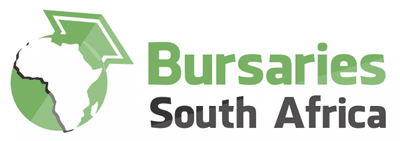Recognition of Prior Learning (RPL) – All You Need to Know
What is RPL?
Recognition of Prior Learning (RPL) is when an individual’s attributes (skills, knowledge, expertise, and competence) is formally acknowledged and considered for entry into tertiary studies. The individual attains these attributes by engaging in prior learning. This prior learning can be on a formal, informal, or non-formal basis, with and in the form of self-study, qualifications, work, or various life experiences.
RPL is used to assess what the individual already knows and to decide if it matches the qualification they have already obtained. As mentioned, a great attribute of RPL is that it takes into consideration aspects such as formal, non-formal, and informal training (including workshops, provider programmes and on-the-job training). This is beneficial as it prevents experienced students from having to complete any unnecessary subjects.
Find all Bursaries OPEN for application here
How can RPL benefit a student’s studies?
Any experience one has gained from previous studies can be translated into subject credits with the aid of RPL. These credits can be directly linked to a student’s qualification, or direct access into both undergraduate and postgraduate qualifications.
Throughout life, an individual will acquire a number of skills, experiences, and competencies. This type of learning (which is not based on institutionalized education) is valuable, regardless of how it was obtained. An individual may acquire skills by engaging in workplace training, workplace experience, and short courses.
RPL allows these individuals to gain credits within a formal certificate, diploma, or degree qualifications from Unisa (this will, however, be based on the level of the individual’s knowledge, as prior learning will be compared to specific prescribed learning outcomes).
What are the benefits of RPL?
- Individuals can gain a qualification in a shorter amount of time
- Higher education will be more accessible to individuals who entered the work environment immediately after Matric
- The amount of learning an individual has done in the workplace will be recognised
- An individual’s career will be enhanced owing to a formal education
- Individuals who do not meet the full entry requirements for a course will be aided
How do you apply for RPL?
- Decide which qualification you want to apply for and scout a provider that offers it. It’s important to note that the provider should be SAQA accredited by a relevant SETA or Quality Council.
- Ensure you meet the minimum entry requirements for the qualification and have relevant prior learning/ experience. You can decipher this through a self-assessment tool or by consulting with the provider.
- Compile evidence of your prior learning experience. This can include academic transcripts, letters of recommendation, certificates, job descriptions, work samples, and a Portfolio of Evidence. This is the basis on which your course knowledge will be tested, therefore, it is important that the evidence provided is relevant to the qualification.
- Apply for a RPL Assessment. Here, the provider will hand you an application form and assist you through the process. (It’s important to note that the application fee may vary, depending on the provider of the application).
- Attending an Assessment Interview. During the interview, you will be required to provide additional evidence, demonstrating your skills and knowledge. During the interview, the assessor will assess your evidence and ascertain if you meet the minimum entry requirements for the qualification.
- Should you meet the minimum entry requirements, you will then be given an assessment outcome. This will either lead to you receiving the qualification/ recovered credits towards it (if you are successful), or the provider assisting you on ways to improve (should you be unsuccessful).
- You will then receive the Appeal Assessment outcome. Should you be unsatisfied with the outcome of the assessment, you then have the right to appeal your decision (in doing this, the provider will give you an appeals process, and guide you through it).
Final notes about Recognition of Prior Learning (RPL)
It is important to note that RPL does not give an individual all the course credits they may need. This means that should you have some form of RPL, that does not mean you will automatically progress to graduation. With a combination of RPL and extra learning, you will need to complete at least 50% of the course at the institution to obtain a qualification and graduate.
RPL is a valuable process that can lead to a number of rewarding qualifications and credits. It is important to always follow the steps provided in this article to ensure that you submit a successful RPL application in South Africa.
